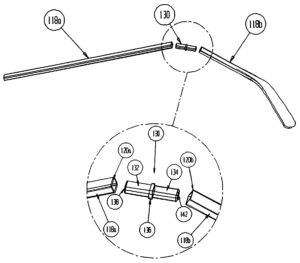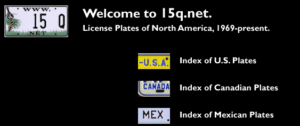In last Saturday’s Wall Street Journal, a member of the British House of Lords, Matt Ridley, published a long essay decrying the climate change doomsdayers, namely ecologists who saw time running out with no fix in site. His point was that humans are explorers, inventors, and problem solvers. We are a species capable of transforming problems into solutions, doom into wonder, and we’re working on it right now.
 Ridley sees the doomsdayers as pessimistic and unrealistically stuck on what look like limits (of natural resources, of breathable air and drinkable water) when, in fact, we’ve always (as a species) busted through those limits because of our ingenuity and resourcefulness. This is a reassuring argument, one that also makes some common sense. There are certainly inventions and innovations that will change the world in ways that we can’t imagine today.
Ridley sees the doomsdayers as pessimistic and unrealistically stuck on what look like limits (of natural resources, of breathable air and drinkable water) when, in fact, we’ve always (as a species) busted through those limits because of our ingenuity and resourcefulness. This is a reassuring argument, one that also makes some common sense. There are certainly inventions and innovations that will change the world in ways that we can’t imagine today.
Ridley’s goal, he says, is to get ecologists and economists to work together to create innovation that would improve the environment. Sure, why not?
The issue here isn’t Ridley’s somewhat Pollyannaish view of our ability to solve things. Ridley’s argument seems to mostly turn on an optimistic reading of human’s interactions with our planet and its natural order. Where some see excessive nitrogen run-off from farm fields contributing to suffocating algal blooms in our waterways, Ridley sees more carbon-storing green! Our forests and fields are more productive, lusher, able to filter more CO2 because of fertilizer runoff. Okay. Kind of crazy, maybe kind of right. There is also evidence that increased temperatures caused by increased plant growth will outweigh any gains. So maybe not right, but provocative.
It should be noted that there are some serious attacks on the credibility of Ridley and his book, the Rational Optimist, which matter greatly in terms of his credibility as a writer and idea guy.
Even so, I think it is well worth it for scientists and economists to sit down and work on the gains that stand to be made by innovation and technology. Why not? But also (of course) they should work on putting a price on resources that (Ridley acknowledges) cause collateral harm to people and the environment through pollution, and which are also finite resources, like oil and coal. Such a price, in the form of a tax perhaps (but there are other approaches), could be a way to promote conservation, subsidize less harmful energy sources so that they may reach scale and economic viability, and/or to fund research that allows other forms of efficiency to help us make more of what we have, with less pollution and environmental impact.
This is the sort of innovation I would think economists would welcome, generally, but which usually these days runs into a brick wall of political opposition. Nobody wants new taxes, of course, but shouldn’t such economic innovations be on the table? Ridley doesn’t mention them, so we don’t know where he stands.
We do know that in the US a sizeable percentage of climate change deniers oppose the funding of innovations that might address climate issues because, they argue, whatever climate change is happening is not man-made. (In Oklahoma recently a first-of-its-kind bill passed that charges people who install their own solar and wind power generators a fee for connecting into the grid to distribute excess power they generate.) The deniers see the movement to address climate issues as the work of busybody activists who want to appropriate their goods (in cash, in resources) in order to fix what they believe we haven’t put asunder. Their argument seems to be that if we didn’t break the environment we shouldn’t try to fix it. In other words, we should not pursue the innovation and invention and economic incentive that might solve things because we didn’t cause the problem.
Climate change worriers often counter this argument by pointing out the vast number of scholars who believe that some significant part of the undeniable climate change has been caused by industrialization and the CO2 buildup in the atmosphere. Such a consensus is convincing to me, but I don’t blame skeptics for wanting to think about it more. There is certainly some chance that the changes haven’t been man-made, at least not all of them, and that climate change is cyclical, that greenhouse effects are offset to some extent by other impacts, or whatever. There are many theories and avenues of inquiry and argument available, and all should be explored so we better understand what’s going on. But when it comes to addressing climate change issues that doesn’t matter.
What strikes me, and what Ridley (perhaps inadvertently) makes clear, is that it doesn’t matter what is causing climate change and other pressures on earth (he spends a fair amount of time on agriculture and other issues, too). Temperatures are rising and so are sea levels (and so is population), and as innovators and inventors and pioneers, humans should be and for the most part are aggressively trying to find solutions to these problems.
So yeah, get economists and ecologists in the same room, but let’s also get obstructionist politicians who represent the short-term interests of the energy industry out of the way. They represent the real problem, using the straw man argument against anthropogenic climate change as a reason to support outdated energy policies that cost us as a society and civilization ecologically and economically. Let’s let humankind do what it does best, and get to solving the problems.





